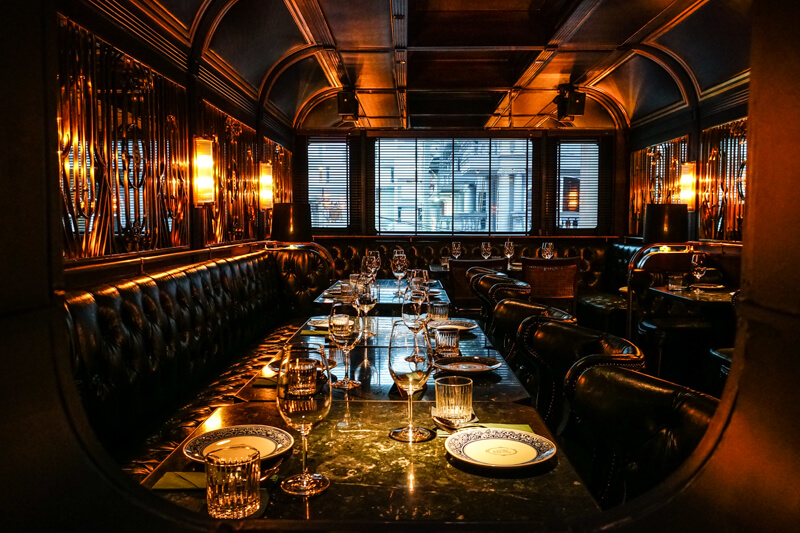Among the nightclubs, busy bars and roadside stalls on Soi Sukhumvit 11 lies a calm and cozy restaurant specializing in an under-the-radar, regional cuisine of Thailand.
The second edition of Sri Trat, a restaurant on Soi Sukhumvit 33 that pays tribute to the province of Trat, Burapa was born just a couple of months ago with the aim to reinterpret the traditional dishes of northeastern Thailand through the view of a local from Trat (in the eastern part of the country).
Coconuts Bangkok met with Burapa co-owner Wongwich Sripinyo, who was born and raised in Trat. Wongwich told us that he always wondered why Thai cuisine typically represents dishes from the south, north and northeastern parts of Thailand, and not any from his province or region.
Feeling noi jai (“slighted” in Thai), two years ago he opened his own restaurant Sri Trat, serving traditional eastern Thai dishes that were familiar to him throughout his life. Now, instead of serving original eastern food like its sister branch, Burapa takes a slight turn by serving Isaan, or northeastern, dishes — but with twists inspired from the eastern region.
From outside, Burapa looks like just another shophouse-restaurant on Soi 11, but it’s the interiors that took us by surprise. Ascending from the sleek bar on the first floor, you’ll see that the second and third levels are outfitted like the inside of a luxury Oriental Express train. The rooms are filled with button-back leather sofas, dining booths, windows and red drapes. Above them are shelves stuffed with vintage suitcases. Jazz music in the mid-’40s and ’50s blares from speakers. The decor and mood are like one big nod to the grandeur of Gatsby.

Now, let’s get down to the food. The kitchen serves a variety of northeastern dishes, from larb spicy salad to Isaan-style sour sausages. There are also dishes that can’t be found at other regular Isaan restaurants, since the menu is built from “50 percent creativity” from Wongwich, and “50 percent authenticity” courtesy of his mother. What connects the menu concept, however, is its use of staple ingredients that are uniquely used in eastern cuisine, particularly certain fruits and seafood.
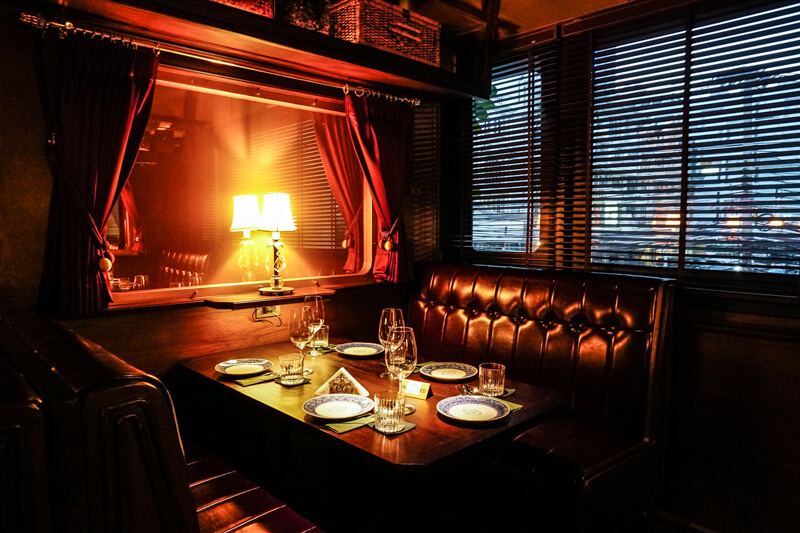
Many may know Yum Naem Kao Tod, a salad bowl mixed with preserved pork sausage and fried rice. But instead of adding the typical pork skin to the dish, Wongwich replaces those fatty chunks with sesame oil-seared jellyfish from his hometown. It gives quite the same chewy, crisp and bouncy textures but feel healthier. The yum naem dish is THB220.
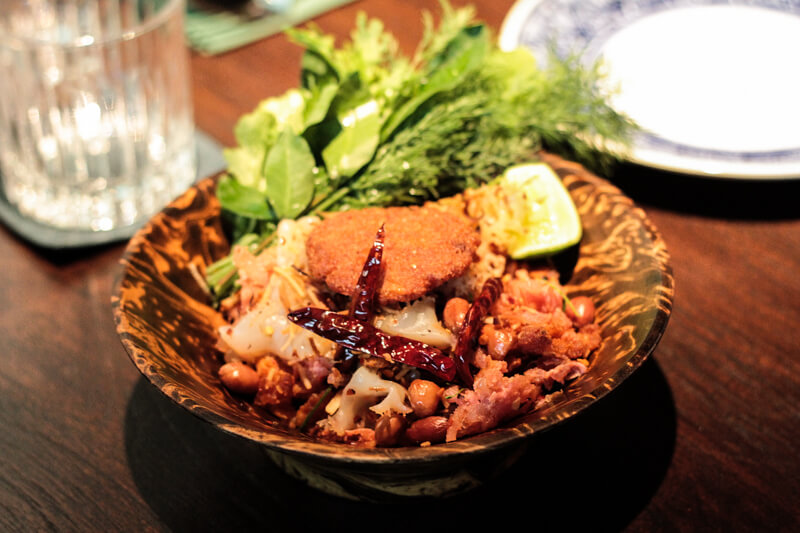
Food waste has been a trending topic for quite some years now and Wongwich said he’s conscious about it, too. After seeing shrimp heads thrown away by his staff, Wongwich designed the dish Kang Goong Tod Yum Haeng (THB180), a crunchy snack plate of sweet & spicy shrimp heads, seasoned with Thai herbs such as lemongrass and kaffir lime leaf.
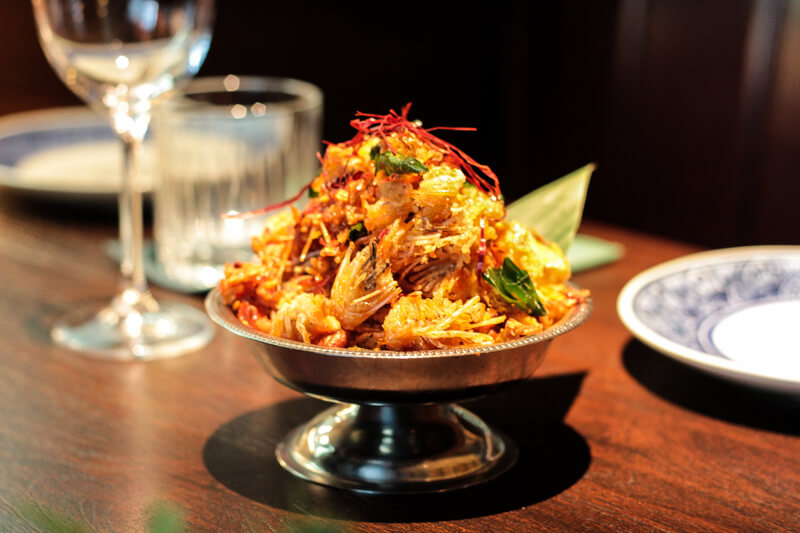
Another specialty of the kitchen is the Moh Mok Gai Kai On (THB250), which is adapted from the traditional mok (fermented meat, herbs and curry wrapped in a banana leaf).
According to Wongwich, he wondered why mok always has to be served in a dry form — and so, he made one that isn’t. The dish combines egg yolk, tender chicken thighs, dill, cardamom and other aromatic spices commonly found in the eastern region, into a spicy clear soup. After just one sip, we found it to be a truly herb-driven delight.
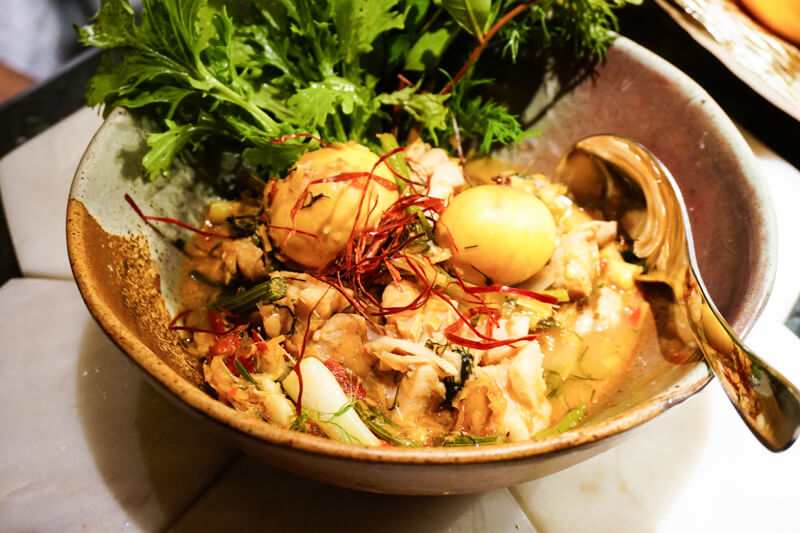
We also had a crab dip with veggies — Lhon Pu (THB280) — that would be great for sharing. It’s healthy and fulfills seafood cravings at the same time. The coconut milk-based dip is topped with a whole crab that’s full of crab meat and roe, accompanied by a basket of fresh vegetables.
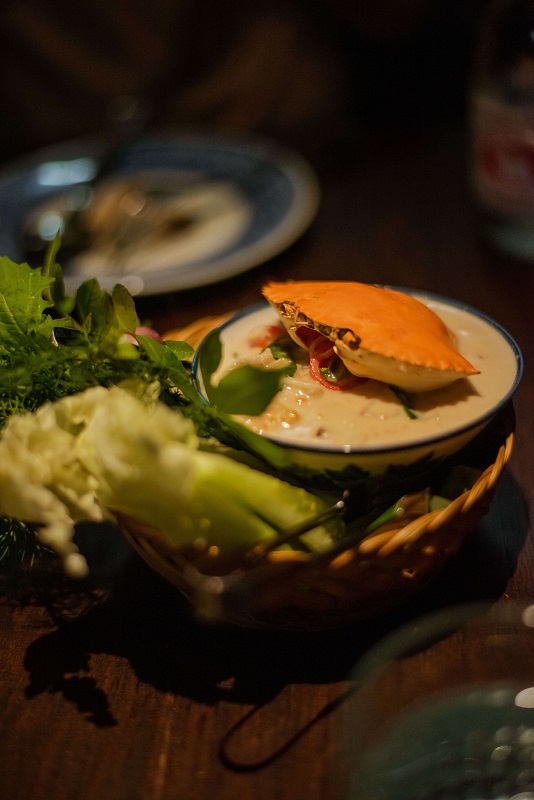
We advise that you leave space for some decadent desserts. The highlights here include Rueng Gluay Gluay (THB250), a giant platter that serves three different dishes of bananas: grilled banana paired with specialty brown sugar sauce, banana cooked in cane sugar syrup and banana mixed with coconut and brown sugar powder.
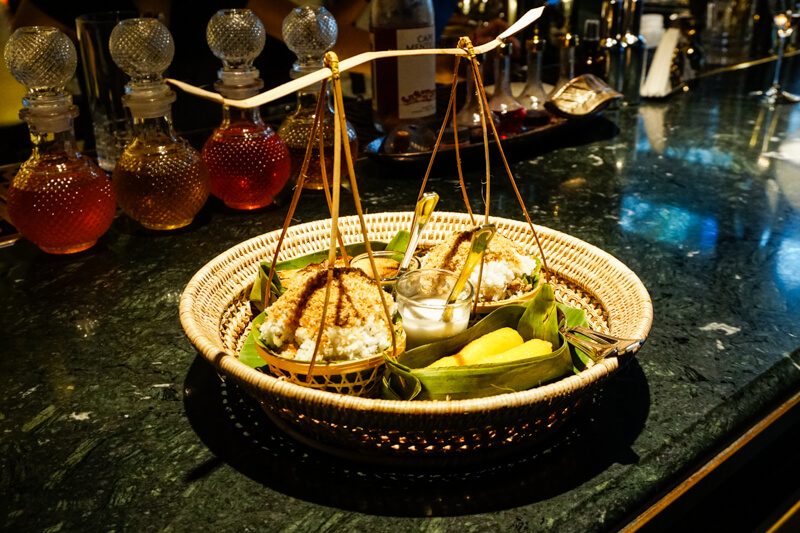
Since the eastern part of Thailand is the center of the country’s durian cultivation, Burapa doesn’t forget to bring the love-it-or-hate-it fruit to the table, taking candied unripened durian and pairing it with sea salt and coconut milk ice-cream (THB150). Even those who hate the smell of durians would enjoy this one, we think.
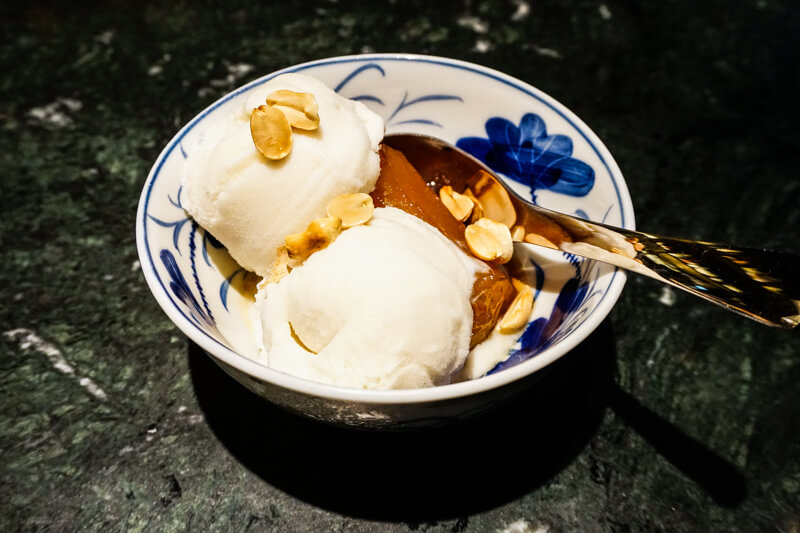
It’s also impossible to miss the bartenders vigorously shaking their concoctions and serve good-looking drinks over the bar counter. Among 16 signature cocktails available now, some of the most popular cocktails are Siam Bury (Tanqueray Gin, raspberry puree, Falernum syrup liqueur, Elderflower-Espuma, pomegranate juice, nutmeg, pandan leaf and pomegranate, THB340) and the Jasmine Old-Fashioned (Even Williams Rye, jasmine syrup, Angostura Bitter and pandan leaf, THB300). We also got to try a glass of the bittersweet The Pianist (whisky, Cherry Heering liqueur, fernet, umeshu and rosemary, THB350) which will be added to the menu soon.
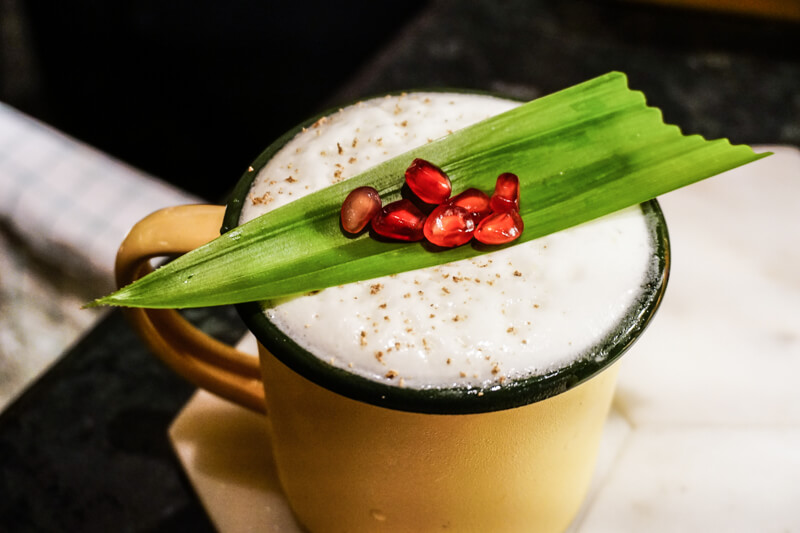
During its current soft opening, Burapa is open from 6pm through 1am every day except Mondays. It’s located on Soi Sukhumvit 11 and the closest public transportation is BTS Nana.
FIND IT:
Burapa Eastern Thai Cuisine & Bar By Sri Trat
26, Soi Sukhumvit 11, Khlong Toei Nuea, Watthana, Bangkok
Open 6pm – 1am daily, closed Mon
Phone: +662 012 1423
BTS: Nana
Read more of Coconuts Bangkok’s Food & Drink content here:
Eat Like A Local: Samui-style Southern Thai Restaurant Lands in Phrom Phong
